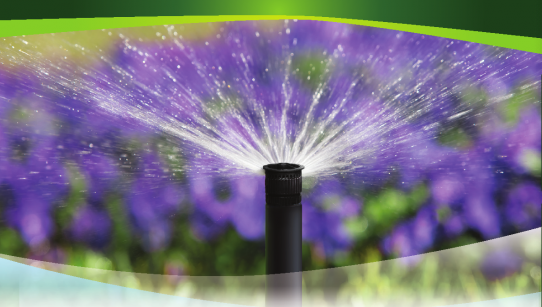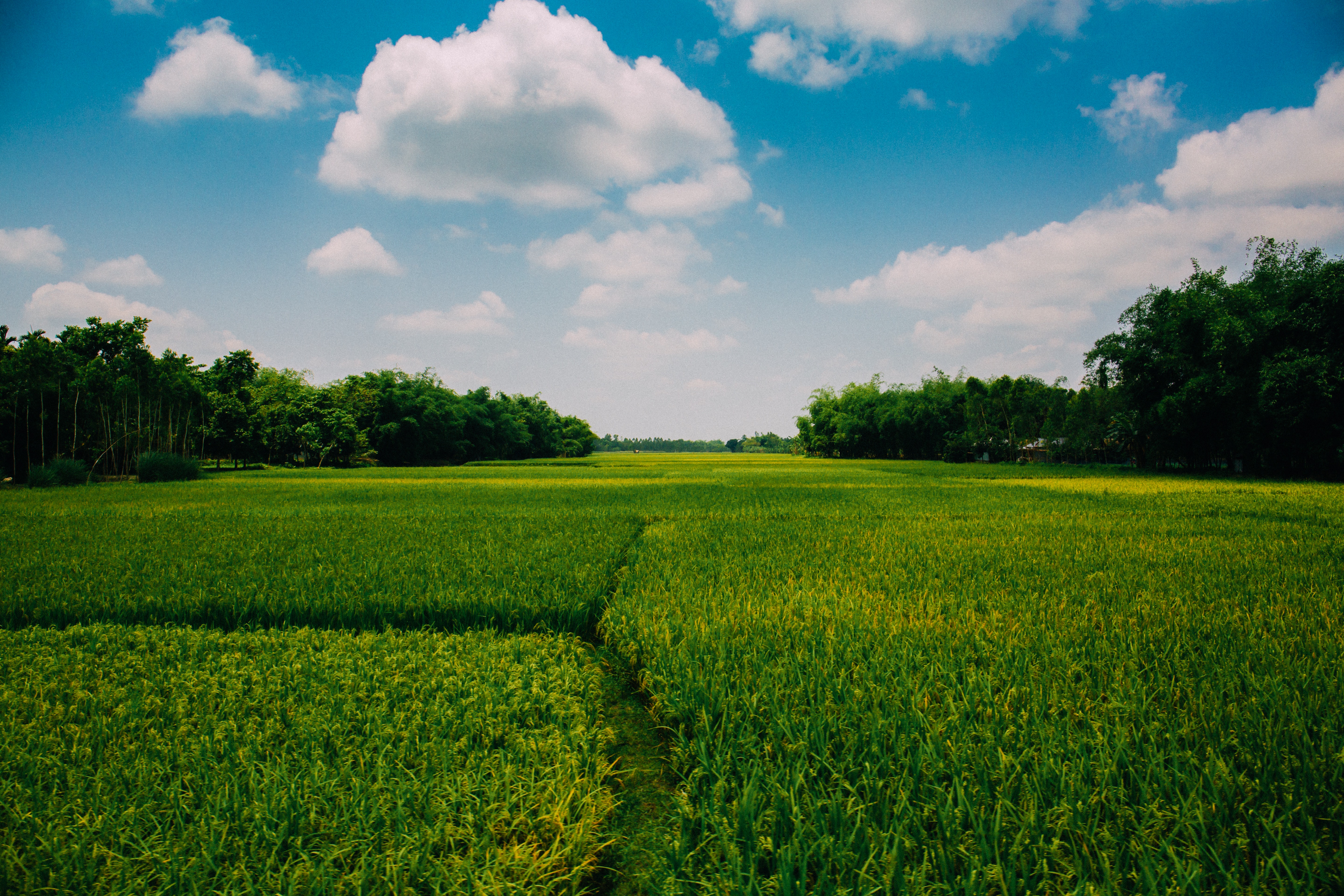Green Agriculture for a Better Tomorrow
Green Agriculture for a Better Tomorrow
Agriculture is a critical industry that provides the world
with food and fiber, but it also has a significant impact on the environment.
From deforestation to soil degradation and water pollution, the traditional
methods of farming can have negative consequences on the planet. However, there
is a growing movement towards sustainable agriculture, which seeks to minimize
the environmental impact of farming while maintaining profitability and
productivity. In this blog, we will explore some of the key practices and
principles of sustainable agriculture.
Conservation tillage: Conservation tillage is a
farming practice that involves minimizing soil disturbance in order to conserve
soil moisture, reduce erosion, and improve soil health. The goal of
conservation tillage is to leave as much of the previous crop residue on the
soil surface as possible, creating a protective cover that helps retain
moisture and reduce erosion.
There are several different types of conservation tillage,
including no-till farming, minimum tillage, and reduced tillage. These
practices can be used to grow a variety of crops, including grains, vegetables,
and forages, and are becoming increasingly popular as farmers seek more
sustainable and environmentally friendly methods of farming.
Crop rotation: Crop rotation is an agricultural
practice that involves growing different crops in a specific sequence on a
piece of land over a number of years. The main goal of crop rotation is to
improve soil health, reduce pest and disease pressure, and increase crop
yields.
Crop rotation works by interrupting the life cycles of pests and diseases that are specific to certain crops. For example, if a farmer grows the same crop year after year, pests and diseases that attack that crop can build up in the soil, leading to lower yields and increased use of pesticides. By rotating crops, the farmer can reduce pest and disease pressure and improve soil health by allowing crops with different nutrient requirements to take advantage of different soil nutrients.
Integrated pest management: Integrated Pest
Management (IPM) is an ecological approach to managing pests that seeks to
minimize the use of hazardous pesticides and to reduce pest populations to
levels that do not cause economic damage. IPM is a holistic and proactive
approach that combines various methods to control pests, including cultural,
physical, biological, and chemical methods.
The key principle of IPM is to monitor pest populations and
to use the least toxic and most cost-effective methods to manage them. This
often involves a combination of preventative measures, such as cultural
practices that discourage pests, and control measures, such as biological
controls and targeted pesticide applications.
Water conservation: Water conservation is a key
aspect of sustainable agriculture as water is a critical resource for
agriculture and food production. In many regions, water scarcity is a major
challenge, making it essential for farmers to use water resources in a
sustainable and efficient manner. By implementing sustainable agriculture
practices, farmers can reduce their water usage, maintain soil moisture, and
improve crop yields, all while protecting the environment and conserving water
resources for future generations.
Renewable energy: By transitioning to renewable
energy sources such as solar and wind power, farmers can reduce their
dependence on fossil fuels, decrease greenhouse gas emissions, and reduce their
energy costs. Additionally, renewable energy sources can provide farmers with a
more reliable and sustainable source of energy, helping to ensure that their
operations can continue even during power outages or energy shortages.
The use of renewable energy sources in agriculture is also
beneficial for the wider community, as it contributes to the development of a
more sustainable energy system and helps to mitigate the impacts of climate
change. By embracing renewable energy sources, farmers can play an important
role in shaping a more sustainable future for themselves and for generations to
come.
Organic farming: Organic farming is a sustainable
agriculture practice that prioritizes the use of natural methods over synthetic
fertilizers and pesticides. By avoiding the use of synthetic chemicals, organic
farmers aim to maintain the health of their soil, promote plant growth, and
minimize their impact on the environment.
Organic farming also supports the health of wildlife and
beneficial insects by avoiding the use of pesticides and promoting biodiversity.
This helps to create a balanced and sustainable ecosystem on the farm, which
can help to reduce the need for synthetic inputs and improve the overall
sustainability of the farm.
Soil conservation: Soil conservation and sustainable
agriculture go hand in hand in promoting a healthier and more resilient food
system. Soil conservation aims to protect and preserve soil from degradation,
erosion, and loss of fertility, while sustainable agriculture practices promote
environmentally responsible and economically viable food production.
In soil conservation, farmers use techniques such as cover
cropping, reduced tillage, and intercropping to maintain soil structure,
fertility, and water-holding capacity. These methods help to reduce soil
erosion and improve soil health, promoting healthy plant growth and higher crop
yields.
Biodiversity: Biodiversity is a key aspect of
sustainable agriculture, as it promotes a healthy and diverse ecosystem that
supports plant growth and helps to control pests and diseases. Sustainable
farms aim to maintain and enhance biodiversity through practices such as
planting a variety of crops, providing habitats for beneficial insects and
wildlife, and using integrated pest management techniques.
In addition, sustainable farms often focus on preserving the
land for future generations by avoiding soil degradation and reducing the use
of harmful chemicals and pesticides. This helps to protect soil health,
conserve water, and maintain long-term productivity and resilience. By
promoting biodiversity and sustainable practices, farmers can create a more
harmonious balance between food production and conservation, which benefits
both the environment and local communities.
The
Benefits of Sustainable Agriculture
Environmental protection: Sustainable agriculture
practices help to reduce the environmental impact of farming, from reducing
soil degradation to conserving water resources.
Increased profitability: Sustainable farms can be
more profitable, as they often have lower input costs and can command higher
prices for their products.
Improved health and nutrition: Sustainable
agriculture produces healthier, more nutritious food, as it avoids the use of
harmful chemicals and promotes the use of environmentally-friendly methods.
Community development: Sustainable agriculture can
help to support local communities by providing jobs, promoting economic
development, and preserving natural resources.
Long-term sustainability: By adopting sustainable
agriculture practices, farmers can ensure the long-term sustainability of their
operations and the health of the planet.
Sustainable agriculture is a critical component of a greener
future, offering a path towards more environmentally-friendly and economically
viable farming. By incorporating practices such as conservation tillage, crop
rotation, integrated pest management, and water conservation, farmers can
reduce the environmental impact of farming while maintaining profitability and
productivity. As the world population continues to grow, the importance of sustainable
agriculture will only increase, making it a critical area of focus for the
future of farming.







.png)




No comments yet